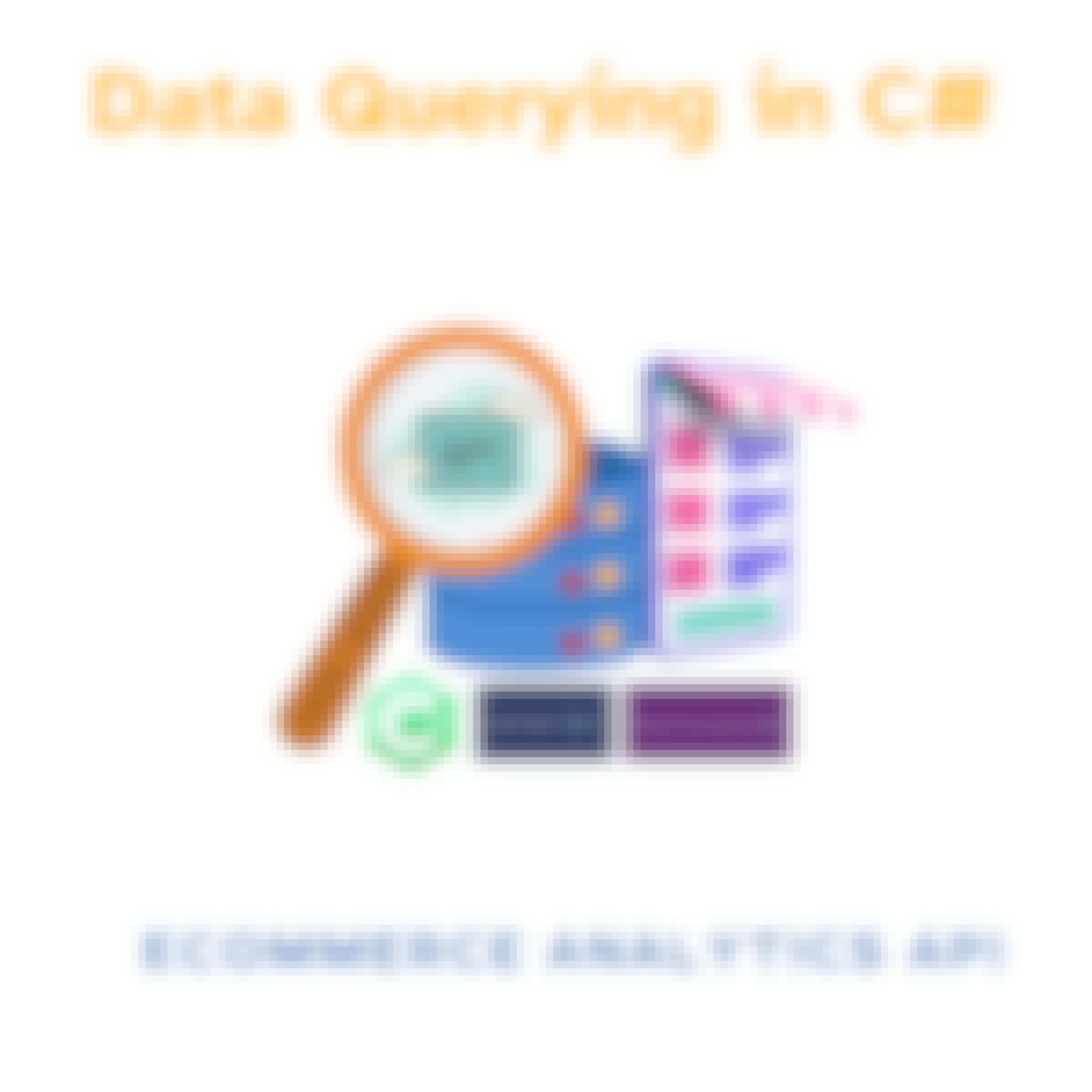Filter by
SubjectRequired
LanguageRequired
The language used throughout the course, in both instruction and assessments.
Learning ProductRequired
LevelRequired
DurationRequired
SkillsRequired
SubtitlesRequired
EducatorRequired
Explore the Systematic Review Course Catalog
 Status: New
Status: NewNortheastern University
Skills you'll gain: Data Mining, Exploratory Data Analysis, Dimensionality Reduction, Data Cleansing, Data Transformation, Text Mining, Predictive Analytics, Big Data, Data Analysis, Classification And Regression Tree (CART), Supervised Learning, Statistical Analysis, Performance Testing, Data Visualization Software, Unsupervised Learning, Machine Learning, Regression Analysis

Skills you'll gain: GitHub, Test Driven Development (TDD), Continuous Integration, Git (Version Control System), ASP.NET, Unit Testing, .NET Framework, Development Testing, Testability, Integration Testing, Code Review, Data Access
 Status: NewStatus: Free
Status: NewStatus: FreeCoursera Instructor Network
Skills you'll gain: Performance Review, HR Tech, Employee Performance Management, Workforce Development, Organizational Development, Employee Coaching, Management Training And Development, People Development, Human Resource Strategy, Constructive Feedback, Performance Analysis, Personalized Service, Growth Strategies, Automation, Data-Driven Decision-Making, Trend Analysis
 Status: New
Status: NewSkills you'll gain: Software Development Tools, Code Review, ChatGPT, Web Development Tools, Software Engineering Tools, React.js, Maintainability, Integrated Development Environments, Development Environment, Application Programming Interface (API), Generative AI, Test Case, Unit Testing, Front-End Web Development, Node.JS, GitHub, Debugging, Natural Language Processing
 Status: New
Status: NewPackt
Skills you'll gain: Performance Appraisal, Performance Review, Performance Management, Employee Performance Management, Management Training And Development, Constructive Feedback, Motivational Skills, Staff Management, Expectation Management, Conflict Management, Emotional Intelligence, Professionalism, Goal Setting, Active Listening, Relationship Building, Communication
 Status: NewStatus: Free
Status: NewStatus: FreeCoursera Instructor Network
Skills you'll gain: Version Control, Integrated Development Environments, Debugging, Git (Version Control System), Application Deployment, Cloud Development, GitHub, Application Development, Continuous Deployment, Code Review, File Management, Software Development Tools, Secure Coding, Configuration Management, Real Time Data, Cloud Storage
 Status: New
Status: NewUniversity of Maryland, College Park
Skills you'll gain: Sprint Retrospectives, Service Recovery, User Feedback, Customer Engagement, Disaster Recovery, User Acceptance Testing (UAT), Technical Product Management, End User Training and Support, Technical Support, Product Improvement, Product Management, Change Management, Active Listening, Performance Review, Constructive Feedback, Continuous Improvement Process
 Status: New
Status: NewBoard Infinity
Skills you'll gain: Apple iOS, Apple Xcode, Secure Coding, iOS Development, Core Data (Software), Application Deployment, Swift Programming, Scalability, Application Programming Interface (API), API Design, JSON, Application Security, Release Management, Encryption, Application Performance Management, Performance Testing, Debugging
 Status: New
Status: NewCoursera Project Network
Skills you'll gain: Relational Databases, API Design, ASP.NET, Object-Relational Mapping, Databases, Query Languages, Back-End Web Development, Application Programming Interface (API), Restful API, Code Review, Database Design, SQL, Data Access, Data Manipulation, C# (Programming Language)
 Status: New
Status: NewBoard Infinity
Skills you'll gain: Software Testing, Test Planning, Test Case, Software Quality Assurance, Software Technical Review, Quality Assurance, Verification And Validation, Software Documentation, Requirements Analysis
 Status: New
Status: NewSkills you'll gain: Application Deployment, Azure DevOps, Continuous Deployment, Git (Version Control System), Version Control, Microsoft Azure, Release Management, Infrastructure as Code (IaC), Code Review

Google Cloud
Skills you'll gain: Google Cloud Platform, Generative AI, Cloud Development, Software Development Tools, Development Environment, Cloud Services, Application Development, Artificial Intelligence, Code Review, Natural Language Processing
Systematic Review learners also search
In summary, here are 10 of our most popular systematic review courses
- Practical Engineering Data Mining: Techniques and Uses: Northeastern University
- Test-Driven Development in .NET Core - The Handbook: Packt
- GenAI for Performance Reviews: Streamline Feedback Processes: Coursera Instructor Network
- Introduction to AI Tools for Coders and Programmers: Packt
- Appraisal Skills: Packt
- Replit Essentials: Collaborate, Create, and Code Smarter: Coursera Instructor Network
- Platform Product Revival: University of Maryland, College Park
- Deploying and Scaling iOS Applications: Board Infinity
- Data Querying in C#: Ecommerce Analytics API: Coursera Project Network
- Fundamentals of Test Case Design: Board Infinity










